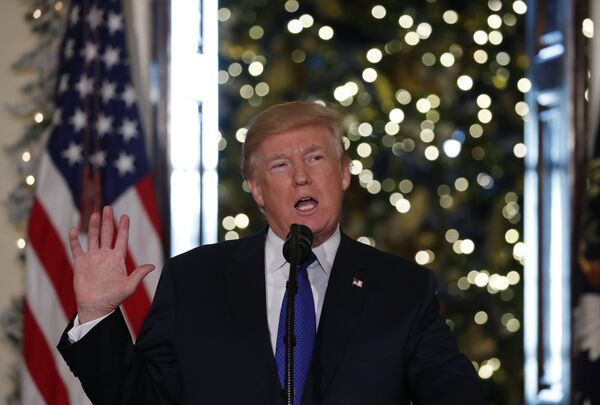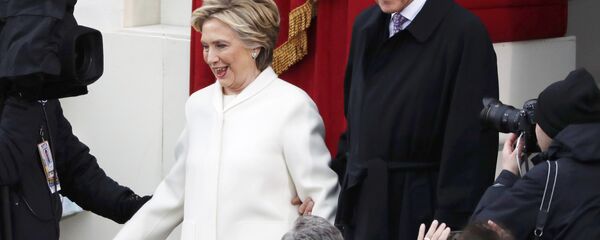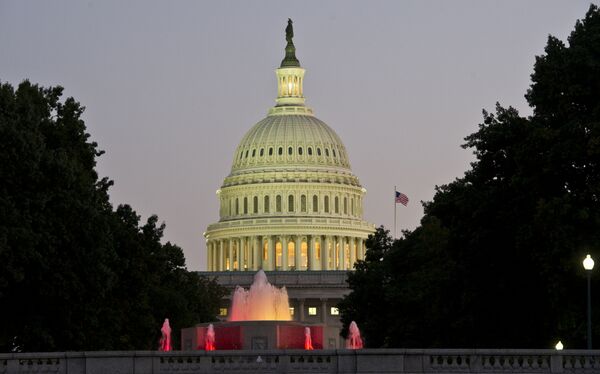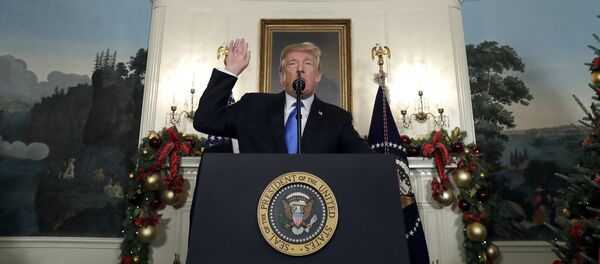The House's approval of the sweeping tax reform bill, passing 224-201 on Wednesday, has been seen by both detractors and supporters of the president as being his first major legislative victory since he stepped into office in January. According to its authors, the bill aims at doubling US economic growth to upwards of 6%, creating jobs and brining funds stuck overseas back into the country. Critics have charged that the reform is a rehash of the Reagan-era trickledown economics which will only benefit the wealthy.
"In my opinion, this tax bill is not as bad as the critics say, and it's not as good as the proponents claim. It is a big change in the law, and it's going to be very complicated to live with. I would guess that it will take us several years to absorb all this," the expert said.
Sputnik: There was some commentary from members of Congress that they didn't really have a chance to take a look at the bill before voting on it due to its immense size. How long should it have taken to really examine this, and do you think enough time was allotted?
Dr. Rosenbloom: They should have taken more time; they would have made fewer mistakes. There are glitches, discount annuities, things that will have to be corrected, or that we will have to live with.
I have more of a personal criticism of the process than I do of the substance of this bill. Tax policy is not written in stone, and there's a lot of variations of the policy that the country adopts. Surely the United States has to evolve with the changing global climate for taxation. But this should have taken more time to prepare.
It's not a question for members of Congress, by the way, because I don't think any member of Congress has much of a clue about the more complicated provisions here. But the staff needs more time to think through all of the interactions within the bill.
Sputnik: What can you say are the primary changes that Americans are going to see?
Dr. Rosenbloom: Well what the bill does is it borrows a ton of money. The real argument against the bill is the increase in the deficit. The way I would view the bill from the macro level is that it borrows a ton of money and restores it largely to the business community, and to some extent to wealthy individuals…
You could argue that the bill is harmful to individuals not so much because it doesn't reduce their taxes, as because it reduces the freedom of the United States to expend money on things we need to spend money on, like infrastructure or helping the disadvantaged. We've stripped ourselves of extra funds with this bill and given it back to companies. That to me is the real indictment of the bill, if there is an indictment.
Dr. Rosenbloom: Well they've aimed at $1.5 trillion, but they've played games with the numbers; I've seen numbers all over the place, but it's probably over $2 trillion. When US debt starts approaching our GDP, that changes a lot of things in the United States. Remember, we live in a very low interest rate environment. If interest rates start rising, that debt burden is going to be much more of a burden on our nation's life.

Sputnik: What are some of the possible positive aspects of this tax reform?
Dr. Rosenbloom: I'm an international tax person, so I've spent most of my time looking at the international tax rules. There are probably good things, some simplifications in various parts of the bill. In the international area, the bill is sort of schizophrenic, in that it gives away a lot of money to various interests. But it also makes some substantial tightening on [some] things…
Another real problem I should mention is that the IRS has been systematically underfunded by the Congress for quite a few years. And it doesn't have the manpower to implement this statute adequately. So Congress is calling on an agency that it has basically crippled to do a huge amount of new work, and we'll have to see how that turns out.
Sputnik: Do you think that this tax reform will attract more investors to the US market, or repatriate some of the American companies that are operating offshore?
Dr. Rosenbloom: I doubt that there will be much repatriation of companies offshore. Under this bill, they're entitled to a lower tax rate [offshore] than if they operate in the United States, so I can't see why they would come back to the United States. It's conceivable that the lower rate will attract some new investment from abroad.
But one thing that the bill does not take into account at all is the reaction of other countries. I can't imagine that the rest of the world is just going to sit there and do nothing. There will be reactive measures taken in lots of other countries. So looking at the bill in a vacuum and saying what will this bill do is sort of a foolish way to approach it. The United States is not the only country in the world, and other countries are going to do things which are going to counteract whatever effect this bill might have.
Dr. Rosenbloom: There are a couple of provisions, one in particular in the international area which is arguably non-compliant with US obligations under the World Trade Organization. So I expect that there will be litigation. That can be acrimonious. The Congress basically took the position that it doesn't care what the rest of the world thinks. But the rest of the world is going to react on that front.
There are [also] a couple of provisions that arguably violate US tax treaty commitments, independent of the [WTO agreement]…
Let me say this: This bill is not good for international [commerce]. We have spent many decades as a leader in attempting to further the interest of international cooperation both in the area of tax and trade. This bill is basically an America First bill, and runs counter to a long history of US efforts to promote international cooperation.








